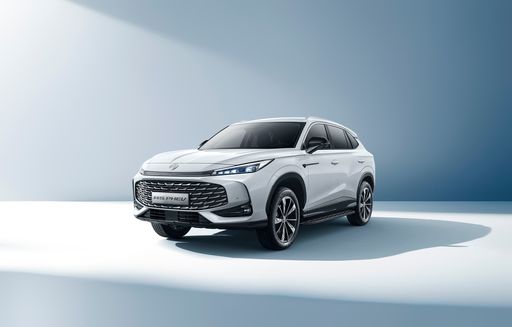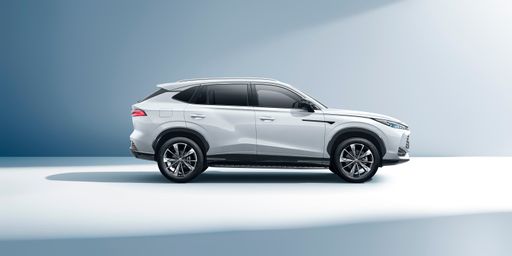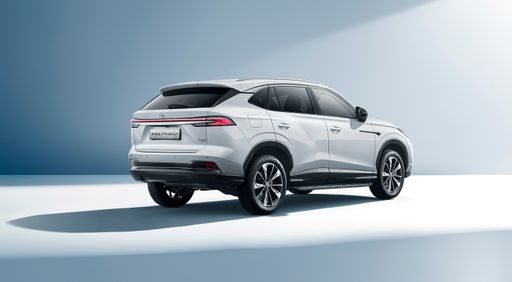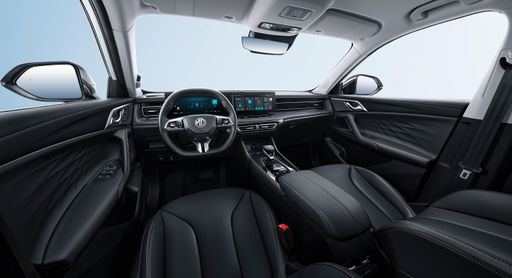Hyundai Kona vs MG HS/EHS - Differences and prices compared
Compare performance (218 HP vs 272 HP), boot space and price (23100 £ vs 24000 £) at a glance. Find out which car is the better choice for you – Hyundai Kona or MG HS/EHS?
Costs and Efficiency:
When it comes to price and running costs, the biggest differences usually appear. This is often where you see which car fits your budget better in the long run.
Hyundai Kona has a slight advantage in terms of price – it starts at 23100 £, while the MG HS/EHS costs 24000 £. That’s a price difference of around 934 £.
Fuel consumption also shows a difference: MG HS/EHS manages with 0.50 L and is therefore convincingly more efficient than the Hyundai Kona with 4.60 L. The difference is about 4.10 L per 100 km.
As for range, the Hyundai Kona performs convincingly better – achieving up to 514 km, about 414 km more than the MG HS/EHS.
Engine and Performance:
Power, torque and acceleration are the classic benchmarks for car enthusiasts – and here, some clear differences start to show.
When it comes to engine power, the MG HS/EHS has a slightly edge – offering 272 HP compared to 218 HP. That’s roughly 54 HP more horsepower.
In acceleration from 0 to 100 km/h, the MG HS/EHS is somewhat quicker – completing the sprint in 6.80 s, while the Hyundai Kona takes 7.80 s. That’s about 1 s faster.
In terms of top speed, the Hyundai Kona performs minimal better – reaching 210 km/h, while the MG HS/EHS tops out at 195 km/h. The difference is around 15 km/h.
There’s also a difference in torque: MG HS/EHS pulls clearly perceptible stronger with 350 Nm compared to 265 Nm. That’s about 85 Nm difference.
Space and Everyday Use:
Whether family car or daily driver – which one offers more room, flexibility and comfort?
Both vehicles offer seating for 5 people.
In curb weight, Hyundai Kona is slightly lighter – 1370 kg compared to 1625 kg. The difference is around 255 kg.
In terms of boot space, the MG HS/EHS offers slight more room – 507 L compared to 466 L. That’s a difference of about 41 L.
In maximum load capacity, the MG HS/EHS performs a bit better – up to 1484 L, which is about 184 L more than the Hyundai Kona.
When it comes to payload, Hyundai Kona to a small extent takes the win – 490 kg compared to 400 kg. That’s a difference of about 90 kg.
Who comes out on top?
Overall, the MG HS/EHS shows itself to be is largely superior and secures the title of DriveDuel Champion.
It convinces with the more balanced overall package and proves to be the more versatile choice for everyday use.

MG HS/EHS
Costs and Consumption
View detailed analysis
Engine and Performance
View detailed analysis
Dimensions and Body
View detailed analysis
Hyundai Kona
The Hyundai Kona wears its personality on the outside with bold styling and sprightly handling that turns city driving into something a little more fun than a commute. It blends practical space, modern tech and sensible running costs into a compact, stylish package — a smart pick if you want flair without paying luxury prices.
details



MG HS/EHS
The MG HS, also known as the EHS in its hybrid variant, is a midsize SUV that combines modern design with a focus on comfort and technology. Its spacious interior offers a premium feel, enhanced by quality materials and an array of advanced features aimed at ensuring a smooth driving experience. Known for its efficiency, the MG HS/EHS delivers an enjoyable ride whether navigating city streets or taking on longer road trips.
details




|

|
|
|
|
Costs and Consumption |
|
|---|---|
|
Price
23100 - 41600 £
|
Price
24000 - 36000 £
|
|
Consumption L/100km
4.6 - 7 L
|
Consumption L/100km
0.5 - 7.6 L
|
|
Consumption kWh/100km
14.6 - 16.8 kWh
|
Consumption kWh/100km
-
|
|
Electric Range
377 - 514 km
|
Electric Range
100 km
|
|
Battery Capacity
1.3 - 65.4 kWh
|
Battery Capacity
-
|
|
co2
0 - 163 g/km
|
co2
14 - 173 g/km
|
|
Fuel tank capacity
38 - 47 L
|
Fuel tank capacity
55 L
|
Dimensions and Body |
|
|---|---|
|
Body Type
SUV
|
Body Type
SUV
|
|
Seats
5
|
Seats
5
|
|
Doors
5
|
Doors
5
|
|
Curb weight
1370 - 1773 kg
|
Curb weight
1625 - 1930 kg
|
|
Trunk capacity
466 L
|
Trunk capacity
441 - 507 L
|
|
Length
4350 - 4385 mm
|
Length
4655 - 4670 mm
|
|
Width
1825 mm
|
Width
1890 mm
|
|
Height
1580 - 1585 mm
|
Height
1663 - 1664 mm
|
|
Max trunk capacity
1300 L
|
Max trunk capacity
1291 - 1484 L
|
|
Payload
420 - 490 kg
|
Payload
400 kg
|
Engine and Performance |
|
|---|---|
|
Engine Type
Electric, Petrol, Full Hybrid
|
Engine Type
Petrol, Plugin Hybrid, Full Hybrid
|
|
Transmission
Automatic, Manuel
|
Transmission
Manuel, Automatic
|
|
Transmission Detail
Reduction Gearbox, Manual Gearbox, Dual-Clutch Automatic
|
Transmission Detail
Manual Gearbox, Dual-Clutch Automatic, Automatic Gearbox
|
|
Drive Type
Front-Wheel Drive, All-Wheel Drive
|
Drive Type
Front-Wheel Drive
|
|
Power HP
115 - 218 HP
|
Power HP
170 - 272 HP
|
|
Acceleration 0-100km/h
7.8 - 11.9 s
|
Acceleration 0-100km/h
6.8 - 9.6 s
|
|
Max Speed
162 - 210 km/h
|
Max Speed
190 - 195 km/h
|
|
Torque
200 - 265 Nm
|
Torque
275 - 350 Nm
|
|
Number of Cylinders
3 - 4
|
Number of Cylinders
4
|
|
Power kW
85 - 160 kW
|
Power kW
125 - 200 kW
|
|
Engine capacity
998 - 1598 cm3
|
Engine capacity
1496 cm3
|
General |
|
|---|---|
|
Model Year
2024 - 2025
|
Model Year
2024 - 2025
|
|
CO2 Efficiency Class
A, D, C, E, F
|
CO2 Efficiency Class
F, B, D
|
|
Brand
Hyundai
|
Brand
MG
|
Is the Hyundai Kona offered with different drivetrains?
Available configurations include Front-Wheel Drive or All-Wheel Drive.
The prices and data displayed are estimates based on German list prices and may vary by country. This information is not legally binding.
